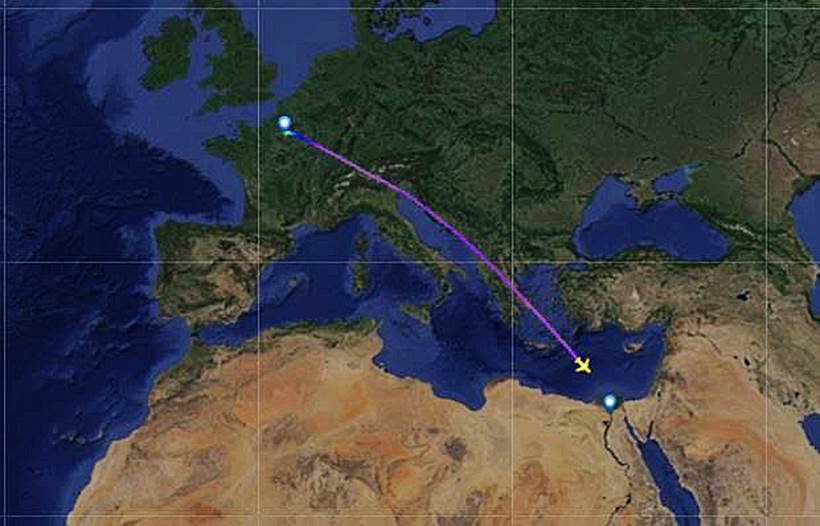-
Tips for becoming a good boxer - November 6, 2020
-
7 expert tips for making your hens night a memorable one - November 6, 2020
-
5 reasons to host your Christmas party on a cruise boat - November 6, 2020
-
What to do when you’re charged with a crime - November 6, 2020
-
Should you get one or multiple dogs? Here’s all you need to know - November 3, 2020
-
A Guide: How to Build Your Very Own Magic Mirror - February 14, 2019
-
Our Top Inspirational Baseball Stars - November 24, 2018
-
Five Tech Tools That Will Help You Turn Your Blog into a Business - November 24, 2018
-
How to Indulge on Vacation without Expanding Your Waist - November 9, 2018
-
5 Strategies for Businesses to Appeal to Today’s Increasingly Mobile-Crazed Customers - November 9, 2018
Signals detected from EgyptAir Flight 804 in Mediterranean
Search teams are working against the clock to recover the two flight recorders that will offer vital clues on the fate of flight 804, because the acoustic signals that help locate them in deep water cease transmitting after about 30 days.
Advertisement
So far, some debris from the plane – including life vests, personal belongings and parts of wreckage – has been recovered.
A radio signal picked up on the day of the crash from the plane’s emergency locator transmitter (ELT) allowed officials to determine a broadly defined search zone, but nothing new has since been detected, the sources told Reuters.
Investigators are keen to locate larger parts of the fuselage which house its flight data and cockpit voice recorders in the so-called “black boxes”.
EgyptAir Flight MS804 crashed in the Mediterranean last Thursday between the Greek island of Crete and Egypt’s north coast with 66 people aboard, including 30 Egyptians and 15 French nationals.
Egypt’s ministry of civil aviation signed a memorandum of understanding on Friday with the Mauritius-based Deep Ocean Search to help with the search and retrieval process, according to a ministry statement.
Egyptian investigators said some of the wreckage already found had been sent to a forensic lab for analysis, along with small fragments of human remains for possible identification.
It’s unknown what (or who) caused the crash.
“We are in talks with two private companies.in co-ordination with the Egyptian authorities”, a French ministry spokesman said.
The search for the emergency locator transmitter (ELT) is also underway and focused on a 5 km area, Moqadem said.
Advertisement
The plane’s last automated messages indicated overheating, smoke and computer failures, but air traffic control received no mayday call from the flight crew.





























